
Patients with ESR1-mutated, ER-positive, HER2-negative, advanced breast cancer experienced an increase in PFS with vepdegestrant compared with fulvestrant.

Patients with ESR1-mutated, ER-positive, HER2-negative, advanced breast cancer experienced an increase in PFS with vepdegestrant compared with fulvestrant.

Encorafenib and cetuximab plus mFOLFOX6 increased progression-free survival for patients with metastatic colorectal cancer harboring BRAF V600E mutations.

First-line maintenance therapy with lurbinectedin plus atezolizumab has the potential to become a new standard of care in extensive-stage small cell lung cancer.

The phase 3 INAVO120 trial showed that overall survival significantly improved with the addition of inavolisib to palbociclib and fulvestrant in PIK3CA-mutant, hormone receptor–positive, HER2-negative, endocrine-resistant advanced breast cancer.

Docetaxel was associated with lower rates of peripheral neuropathy compared with paclitaxel for Black patients with breast cancer.

Durable complete responses were observed in patients with TP52-mutated mantle cell lymphoma treated with ibrutinib plus venetoclax.

Adding brentuximab vedotin to lenalidomide/rituximab results in a stronger overall survival benefit compared with lenalidomide/rituximab alone in relapsed/refractory diffuse large B-cell lymphoma.

Three-year findings from the TRANSFORM trial provide further evidence that liso-cel should be considered as the new standard of care along with other CAR T-cell therapies for patients with primary refractory or relapsed LBCL, an expert said.

Compared with epoetin alfa, treatment with luspatercept improved erythroid response rates and the duration of transfusion independence for lower-risk myelodysplastic syndromes.
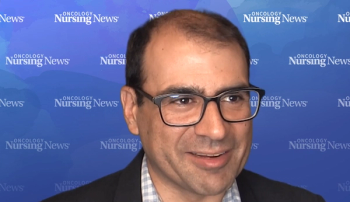
Bispecific antibodies like teclistamab offer “more potent” treatment than monoclonal antibodies for patients with relapsed or refractory multiple myeloma.
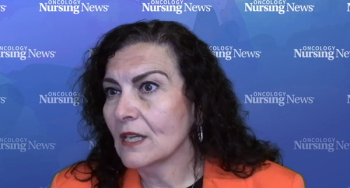
An oncology nurse practitioner highlights the benefits of attending conferences like the ASCO Annual Meeting.
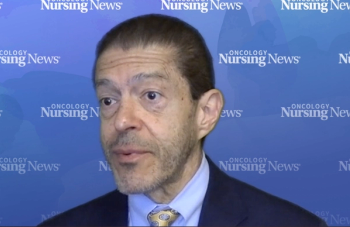
Care teams should maintain frequent communication with patients with chronic myeloid leukemia to ensure best outcomes, even between appointments.

The health care team should provide an open forum for patients with chronic myeloid leukemia to discuss how adverse events from treatment affect daily function.
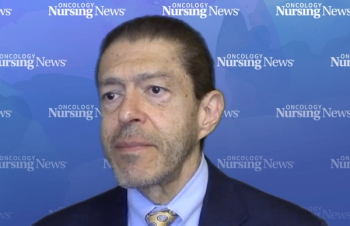
Patients who recently received a chronic myeloid leukemia diagnosis can benefit from initial discussions about treatment, side effects, and study results.
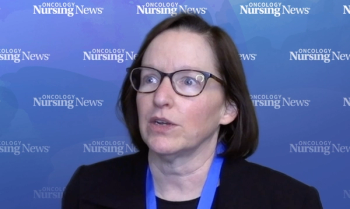
Resources are available to help patients through a chronic myeloid leukemia diagnosis and treatment.
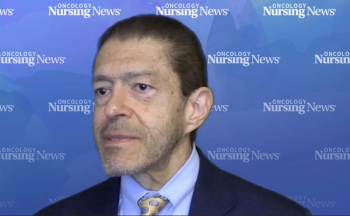
As most adverse effects of chronic myeloid leukemia treatment are manageable, patients with the disease may be able to continue their normal lifestyle while receiving therapy.
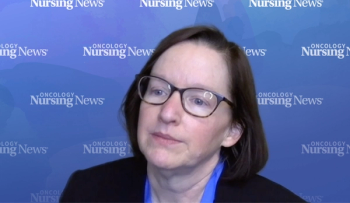
Patient-provider conversations are vital to promote the best care for chronic myeloid leukemia, a patient advocate said.

Compared with fulvestrant alone, abemaciclib plus fulvestrant improved progression-free survival in select patients with hormone receptor–positive/HER2-negative advanced breast cancer.

Patients with advanced renal cell carcinoma with previous exposure to lenvatinib derived modest benefit with tyrosine kinase inhibitors.

Adding darolutamide to androgen deprivation therapy and docetaxel delayed the progression from metastatic hormone-sensitive prostate cancer to metastatic castration-resistant disease.

Patients treated with enfortumab vedotin before sacituzumab govitecan had low objective response rates and median PFS, which may raise questions about this sequencing approach.

Rates of MRD negativity increased with daratumumab plus VRd in newly diagnosed, transplant-eligible multiple myeloma.

Oral azacitidine had a similar safety profile across the 200-mg and 300-mg groups in lower- to intermediate-risk MDS.

Patients with biochemically recurrent nonmetastatic hormone-sensitive prostate cancer who are responding well to an enzalutamide regimen may be able to stop treatment with an impact to their quality of life.

Patients with recurrent ovarian cancer did not derive a benefit from adding atezolizumab to chemotherapy and bevacizumab.

Tucidinostat plus R-CHOP was safe and effective for previously untreated diffuse large B-cell lymphoma expressing MYC and BCL-2.

These data may support belantamab mafodotin, bortezomib, and dexamethasone as a new standard of care for patients with relapsed/refractory multiple myeloma.

An apalutamide-based androgen blockade regimen may improve PSA progression-free survival without a negative impact on quality of life in patients with recurrent prostate cancer.

Findings from this safety run-in cohort of teclistamab, daratumumab, and lenalidomide in newly diagnosed multiple myeloma will steer how randomization of the MajesTEC-7 trial will commence.

Adding inavolisib to palbociclib and fulvestrant improved results for HER2-negative, hormone receptor–positive, PIK3CA-mutated advanced or metastatic breast cancer.